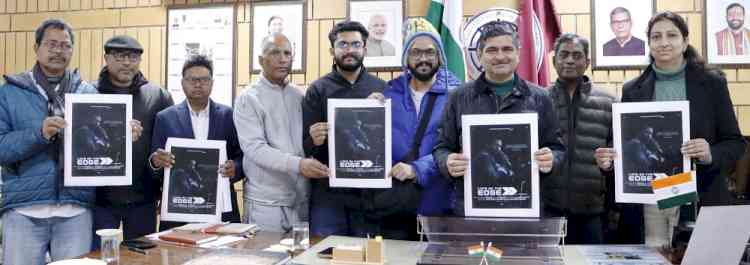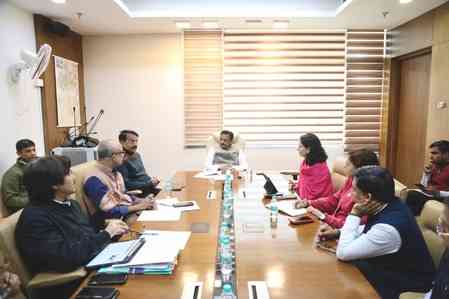Urban space, administrative rationality and making of new ‘ordinary’ citizens
Shaheed Bhagat Singh Memorial Lecture by Political Science, PU

Chandigarh: Department of Political Science, Panjab University, Chandigarh organised Shaheed Bhagat Singh Memorial Lecture which was delivered by Professor Sanjay Srivastava, a noted and widely published sociologist from Institute of Economic Growth, University of Delhi.
In his lecture titled ‘Space, Administrative Rationality and the making of New Ordinary Citizens in Gurgaon’, Srivastava with the help of his field based research in a particular self-enclosed city within the city of Gurugram referred to the intricate relationship between private and public space in the upcoming gated/self-enclosed townships all over India especially near the mega cities like Delhi, Bangalore, Mumbai, among others.
As was clear during his presentation, his research findings would easily have much wider applicability in case of other gated cities/neighbourhood as well. These ‘new’ micro cities adjoining the larger older cities are planned exclusively to cater to the consumerist needs of the ‘new’/metropolitan middle class, beneficiary of the neo-liberal economic reforms in ‘new’ globalising India.
Viewing itself as ‘primary agent’ of market forces, the upper middle class living in these privileged spaces unabashedly pursues a ‘good life’ marked by professional mobility, security, luxury and market based wider choices. To cater to the material desires of the inhabitants, these self-enclosed townships are dotted with multiplexes, exclusive clubs, community centres, and high-rise residential complexes.
The intricate relationship between civil society, private capital and the state was unravelled by Srivastava, showing how the state acts at the behest of both corporate sector and ‘new ordinary citizens’ (read upper-middle/metropolitan class) constituting supposedly democratic civil society. The state invokes selectively the language of administrative rationality/efficient administration for the ‘proper’ use of the legal public spaces in the self-enclosed city. Subalterns from the neighbouring unplanned/ unintended semi-urban spaces who come to work daily in the offices, high rises and the shops in the planned/intended city basically to serve the local inhabitants are asked regularly to ‘behave’, ‘maintain order’ and not ‘misuse’ or create ‘nuisance’ in the public spaces.
However, the same rules are not made equally applicable to the privileged netizens of the gated community. So the state essentially relates differently to the two sets of people: underclasses and the ‘new’ middle class. The youth for instance belonging to the latter category would be allowed to develop their ‘new association’ with the street, ‘taking back’ the street so to say, by performing raahgiri (street play) in the streets. However the people coming from to the city for their livelihood from nearby villages or underprivileged neighbourhood would be kept under ‘cultural surveillance’ by the guards as well as the state agents, be it them having access to park, open spaces or even the street for offering prayers or other collective activities. The subalternity would be thus defined by both caste and religion along with the class divides in economic terms. The netizens on the other hand would be celebrating their cultural and religious festivities in these spaces and it would be okay with the corporate sector and the state. Not only this, the corporate sector would be virtually dictating the state and owners to allow or not to allow the usage of public land, legalised or not, depending whether a particular construction would add or rather undervalue the property at its disposal in the gated city. This is how the much celebrated ‘new’ forms of urbanisation is taking place in the ‘happening cities’, in terms of ideas and practices in contemporary India, Srivastava concluded.
The memorial lecture was presided over by Professor Ronki Ram, Shaheed Bhagat Singh Chair Professor in Panjab University.


 cityairnews
cityairnews 










